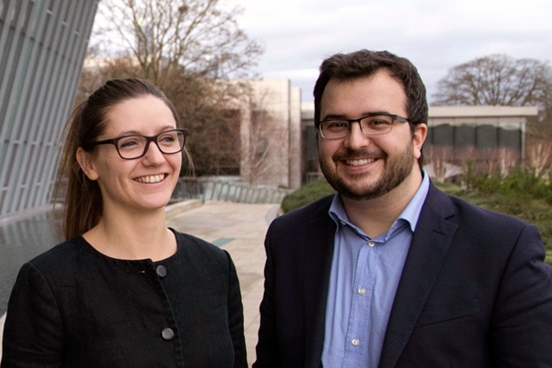22 January 2018. A genomics research lab in the U.K. is adding software to automate data collection that its developer says can improve the productivity of scientists and reproducibility of their findings. The Immune Genomics Group at the Wellcome Sanger Institute in Hinxton, England is the latest site to use lab automation software by BioBright, a 3 year-old company in Boston.
BioBright is developing software, called Darwin Sync, that claims to augment and extend the work of biologists to better document their actions as the work proceeds. This documentation, says BioBright, can help address a chronic and apparently growing problem of reproducibility in lab findings. Darwin Sync, says the company, collects data generated by lab instruments, while at the same time uses voice recognition to capture researchers’ verbal comments to help document their work. Transcripts of those comments can be retrieved later as needed. Researchers’ lab notes are traditionally recorded by hand, a process that can interrupt the work flow in a lab, and increase the amount of time required for experiments.
A June 2015 study in the journal PLoS Biology estimates more than half of all preclinical research is irreproducible, with a total price tag of $28 billion. About a year later, the journal Nature published results from a survey of 1,576 scientists, with half (52%) calling the inability to reproduce results from other labs “a serious crisis.” More than 900 of respondents in the Nature survey came from biology or academic medical labs.
Among respondents in the Nature survey from biology and medicine, two-thirds to three-quarters say they failed to reproduce experiments done by other researchers, and at least half of the group admitted to failed attempts of reproducing their own results. One-third of respondents overall, including 4 in 10 in medicine, say they are taking concrete steps to counter the reproducibility problem, such as better documentation and standardization of experimental methods.
The Immune Genomics lab at Wellcome Sanger Institute, led by geneticist Gosia Trynka, studies genomic factors affecting diseases of the immune system, including autoimmune disorders such as rheumatoid arthritis and celiac disease. The data generated by Trynka and colleagues require complex collection and analytical methods, where errors in these processes could disrupt months of work by researchers.
“Genomic experiments are very sensitive to many variables in the lab,” says Trynka in a joint statement. “BioBright’s tools will not only save us time in analyzing our data, they will allow us to measure variables that we wouldn’t otherwise have measured easily. The information will enable us to correct for the variability, leading to more reproducible results.”
BioBright’s software, as reported in Science & Enterprise in March 2017, was field tested at New York University in a neuroscience lab studying activities of neurons, or nerve cells, in the brain particularly their coordination to control human behavior, with implications for decision-making, speech, and brain-machine connections. The results show researchers in the lab using the system can work alone rather than in pairs, with accuracy of activities such as implanting brain electrodes improved by more than 20 times.
The company is a spin-off enterprise from MIT and Harvard University. Founder and CEO Charles Fracchia is on a leave of absence from MIT’s Media Lab and the lab of George Church at Harvard’s Wyss Institute for Biologically Inspired Engineering.
More from Science & Enterprise:
- Neuro Informatics Software Released to Open Source
- Biotech, Microsoft Partner on Immune System Diagnostics
- Reading Vital Signs with Radio Waves Designed
- Open-Source Model Devised to Value Medical Technologies
- Validic Integrating Home Health Data for Clinical Care
* * *


 RSS - Posts
RSS - Posts
You must be logged in to post a comment.